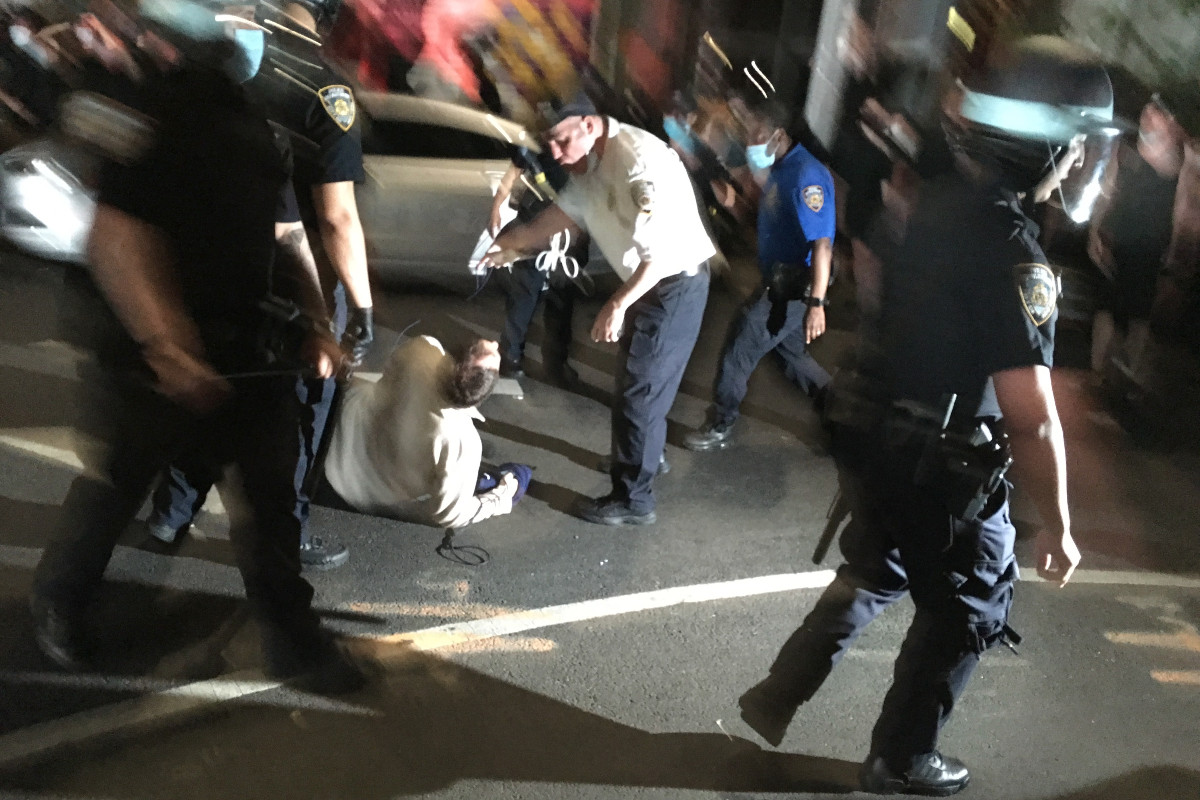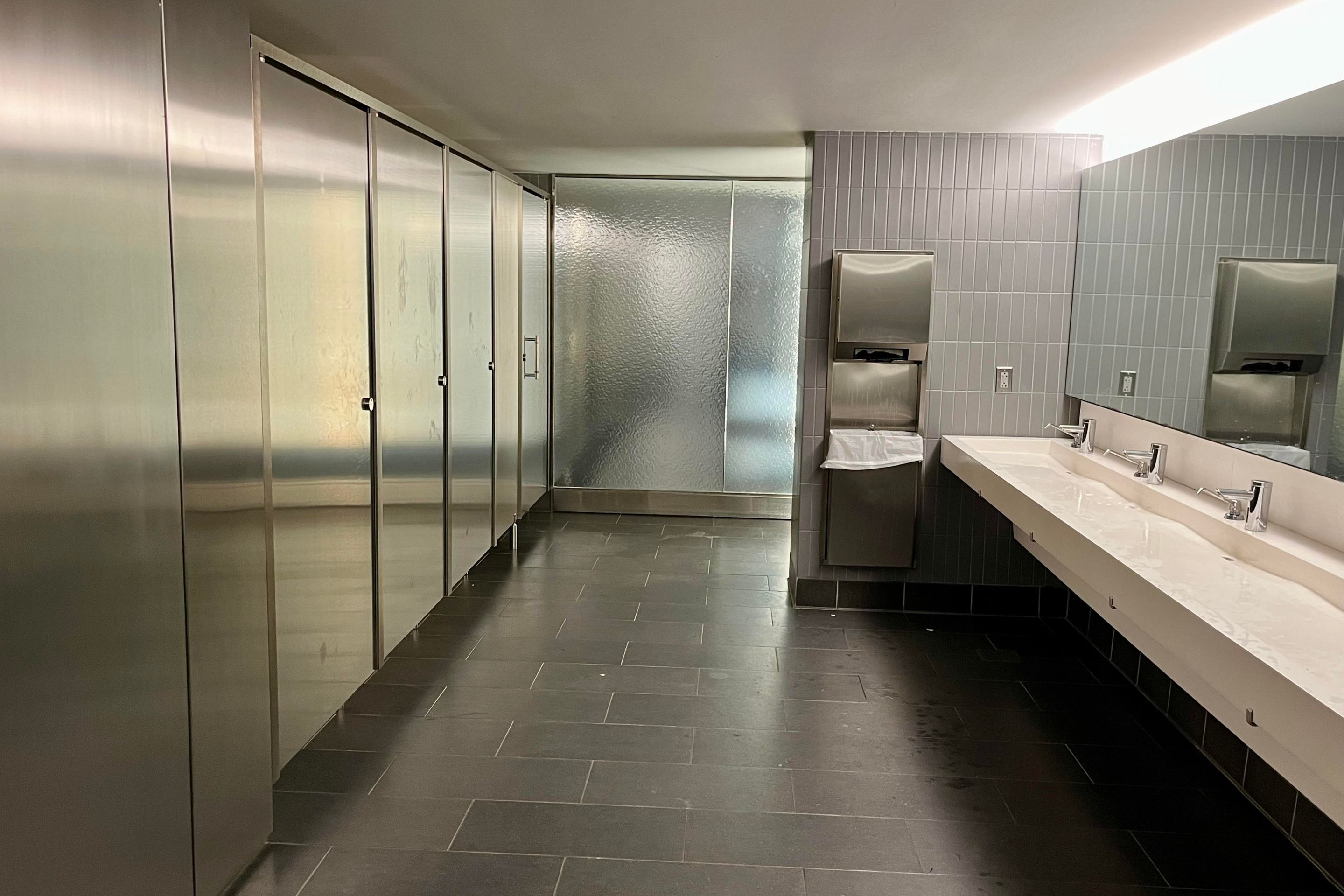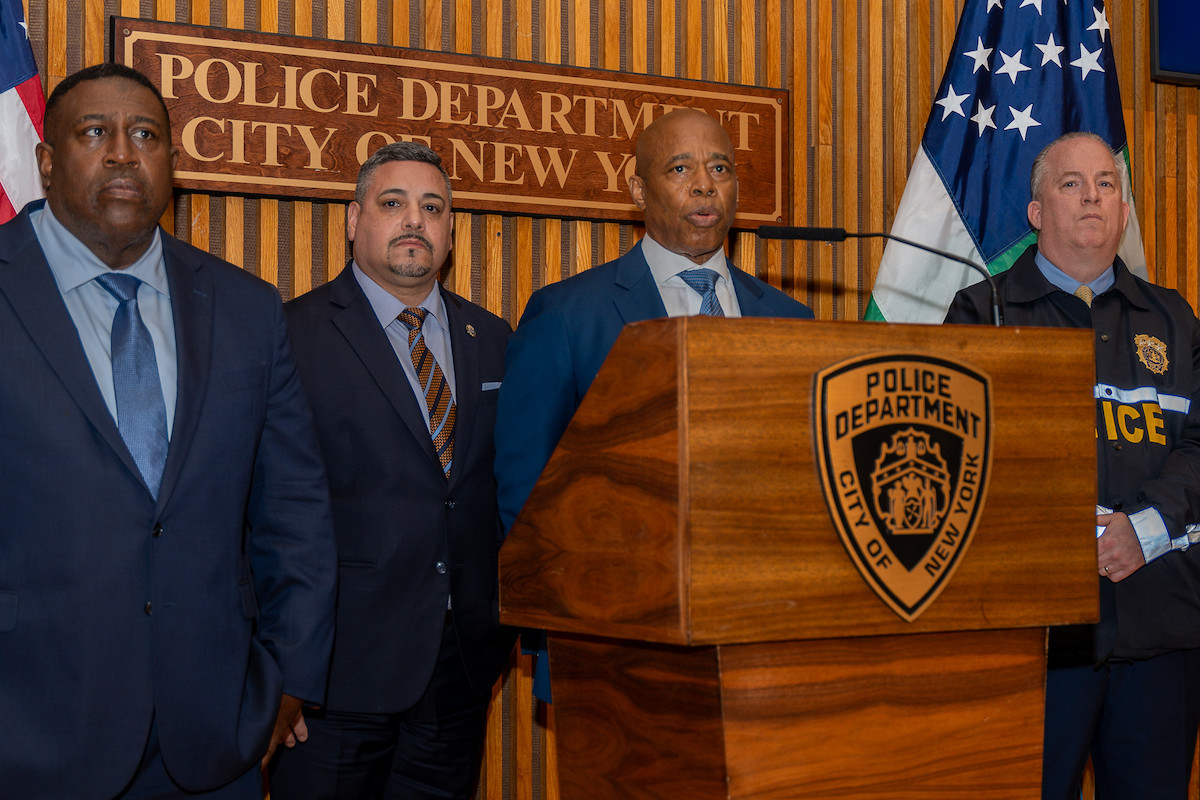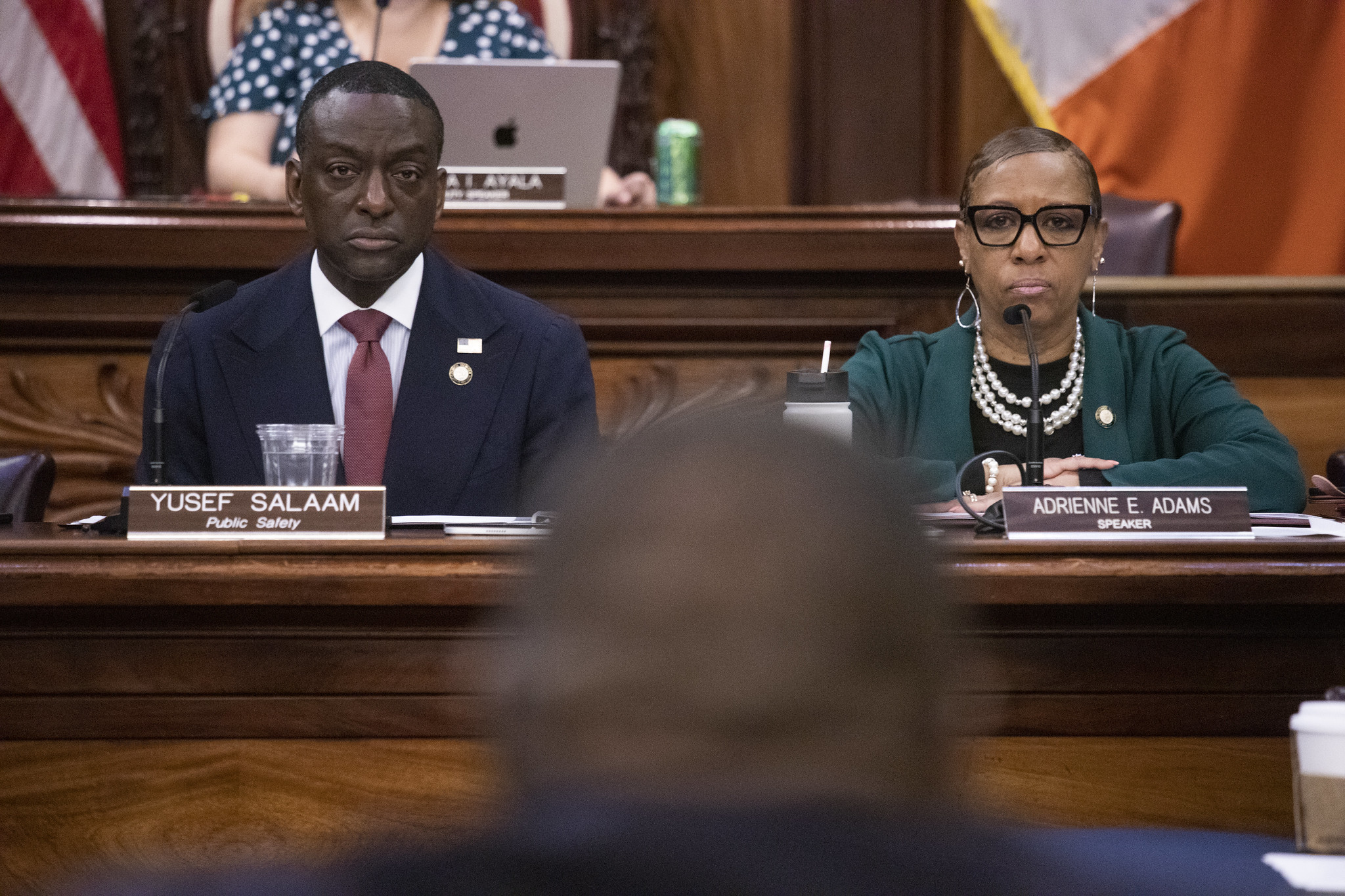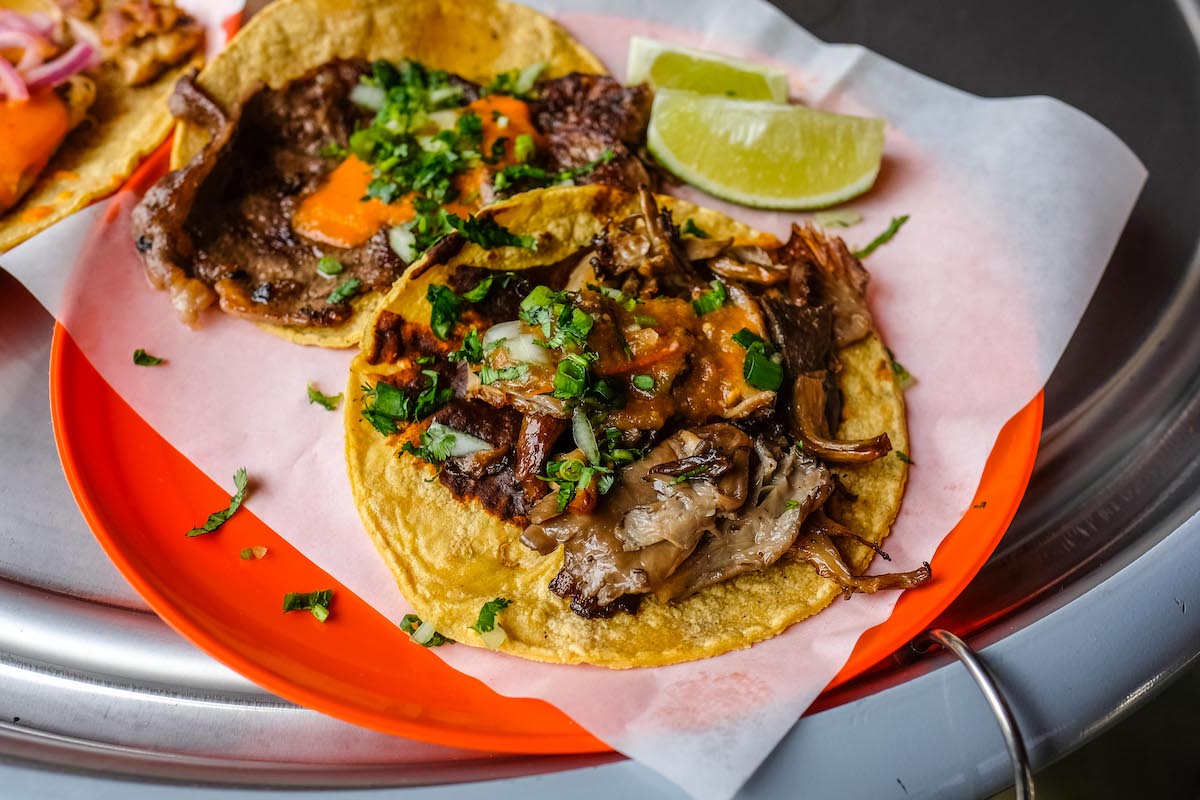It's been almost five months since New York City agreed to overhaul the way the NYPD polices protests as part of the settlement of a raft of class-action lawsuits brought in the wake of the George Floyd protests of 2020. But the settlement still hasn't been finalized because the city's largest police union doesn't like it.
On Monday, Federal Judge Colleen McMahon will hear oral arguments on whether the Police Benevolent Association should be allowed to scuttle the settlement, even though it's neither the party being sued (that's the City of New York) nor one of the parties doing the suing (protesters subjected to the NYPD's heavy-handed response, as well as the New York Attorney General).
Under the settlement, the NYPD committed to a number of reforms of how it reacts to people exercising their right to protest. Where in the past the NYPD has often responded even to small, nonviolent demonstrations with disproportionately large and menacing numbers of police equipped in riot gear, under the settlement the department agreed to a tiered and proportional response, in which police present a light footprint at protests, escalating if necessary as specified conditions are met. Where the NYPD had a history of arresting protesters en masse, often on rinky-dink charges like "walking in the roadway," the department now agreed that officers would need permission from higher-ups before making such low-level arrests.
While the settlement is far from perfect—it does little to change how the NYPD uses violent force against protesters, and after a four-year implementation period, there's no legal mechanism to prevent the NYPD from backsliding—it represents significant progress from the violent abuses on display during the 2020 protests. Or it will, if it's ever actually adopted.
Most immediately, Monday's hearing could determine whether the historic settlement, and the reforms it imposes on the NYPD's treatment of people exercising their constitutional right to protest, goes into effect. More generally, the current legal battle raises a host of messy questions about how lawsuits get settled and who can stop them from getting settled.
When the police unions sought to intervene in the class action suits back in 2021, McMahon denied their request. If the NYPD was engaged in unconstitutional police practices, she wrote, the union doesn't have a legal right to preserve those unconstitutional practices. But the unions appealed, and McMahon was overruled by a panel of the Second Circuit Court of Appeals, which accepted the unions' argument that because changes to NYPD policy that might arise from the lawsuits could affect the personal safety of the police officers in the unions, they should be allowed to participate in the lawsuit and have a say.
This was, to put it mildly, a somewhat wild precedent to set. Police unions in this country are singularly revanchist political formations that consistently resist even the most common-sense police reforms. If they are entitled to have a say in every lawsuit about unconstitutional police abuses, it would significantly complicate the way civil rights litigation has historically nudged police departments to respect civil rights.
Nevertheless, the unions were allowed to intervene in the lawsuits. Once admitted to the litigation, they did very little. They didn't file any claims against anybody or depose any witnesses, but they sat in on many of the negotiations between the plaintiff's lawyers and the City's lawyers. When the settlement was announced, two of the police unions who intervened—the Sergeants Benevolent Association and the Detectives Endowment Association—signed on to it. But the Police Benevolent Association, which represents rank-and-file cops, did not. When Judge McMahon approved the settlement, the PBA, represented by her longtime friend, colleague, and Super Bowl party co-host (and journalist Ben Smith's dad) Robert Smith, objected because it hadn't signed off on the deal, and McMahon reversed herself, revoking her approval.
In the intervening months, the plaintiffs and the City, erstwhile adversaries, filed papers arguing that since they are the real parties to the lawsuit, and they want to settle, it would be absurd to make them go to trial because the union, an intervener, isn't completely satisfied with the agreement they've reached. The PBA, for its part, argued that since the Second Circuit had allowed it to intervene in the suit in order to protect its interest in officer safety, it's allowed to tank the settlement if it thinks it will hurt officer safety. The plaintiffs and the City countered that even if the PBA's safety concerns give it standing, it's wrong on the facts: By implementing reforms calculated to minimize and de-escalate protesters' conflicts with the police, they argued, the settlement will make police safer, not less safe.
Both sides produced expert witnesses. The PBA tapped Louis Anemone, who retired from the NYPD as Chief of Patrol in the last century, who argued that safety is achieved by letting police make unfettered decisions about how much force to show and when to arrest people. "Restraints on the personnel allowed or when and who can effect arrests will create confusion and chaos at the scene," he wrote. The plaintiffs produced expert testimony from Hasan Aden, a federal police monitor and former Virginia police chief, who argued that police standards and best practices have evolved since Anemone's day, and that it's now widely recognized that confronting non-violent crowds with overwhelming force, far from settling situations and assuring officer safety, actually tends to provoke greater levels of conflict.
Meanwhile, Mayor Eric Adams added to the confusion, telling a press conference in December that even though the City had signed the settlement and was fighting in court to implement it, he actually agreed with the PBA, which was seeking to nullify it. "As soon as I read the settlement, I said, this is a problem," Adams said. "You have to go by the advice of your attorneys, but as soon as I read it… Anyone who polices this city should be concerned about what's in the settlement."
The papers filed, more months went by, with no indication from Judge McMahon on how she intended to resolve the dispute. Then, on Tuesday, she abruptly scheduled oral arguments, giving the parties less than a week to prepare.
Just what shape the hearing will take, and when and how McMahon will rule, remains unclear. Regardless, it seems likely that whoever prevails, her decision will be appealed to the Second Circuit. And given the appeals panel's surprising ruling granting the unions intervenor status—the ruling that created this mess in the first place—it's anyone's guess what will happen there.
In the meantime, rolling protests over the bombing of civilians in Gaza continue into their fourth month, and the NYPD is responding to them, unbound by any of the reforms it committed to in the still pending settlement.
If you want to call in and listen to this court hearing of significant public interest, too bad, you can't. Judge McMahon rejected a request to make a dial-in line available for the hearing.
